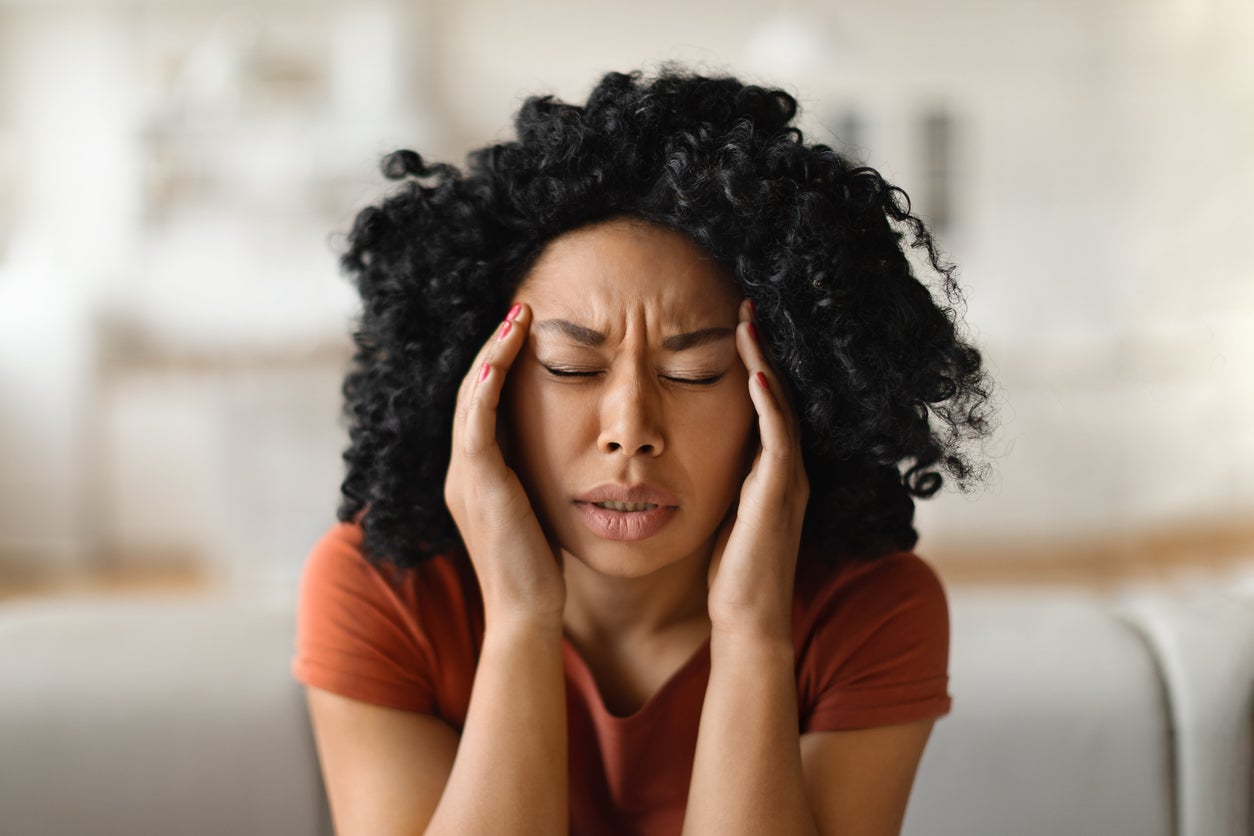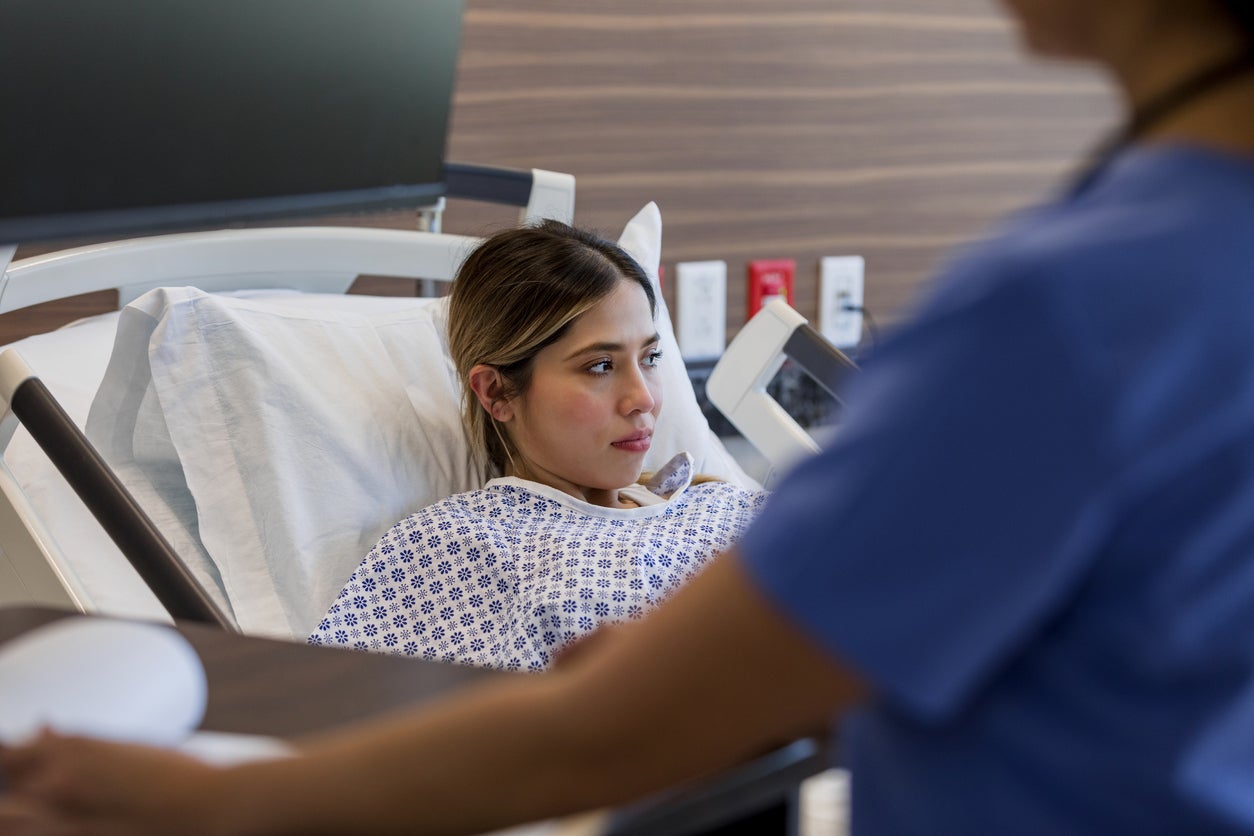The Independent's journalism is supported by our readers. When you purchase through links on our site, we may earn commission.
Women are overmedicated, misdiagnosed and left untreated – there’s one reason why
A new report from the country’s leading cardiovascular experts is shining a light on how the healthcare system is failing women with heart disease. But the rot doesn’t stop there, writes Helen Coffey


Your support helps us to tell the story
From reproductive rights to climate change to Big Tech, The Independent is on the ground when the story is developing. Whether it's investigating the financials of Elon Musk's pro-Trump PAC or producing our latest documentary, 'The A Word', which shines a light on the American women fighting for reproductive rights, we know how important it is to parse out the facts from the messaging.
At such a critical moment in US history, we need reporters on the ground. Your donation allows us to keep sending journalists to speak to both sides of the story.
The Independent is trusted by Americans across the entire political spectrum. And unlike many other quality news outlets, we choose not to lock Americans out of our reporting and analysis with paywalls. We believe quality journalism should be available to everyone, paid for by those who can afford it.
Your support makes all the difference.Heart disease is the biggest killer of women in the UK and worldwide. Did you know that? I certainly didn’t. Anything related to cardiovascular illness has long been painted as a “male disease”, conjuring up the vision of an overweight, middle-aged man having a heart attack – an erroneous stereotype that is, quite literally, killing women.
But while the above fact might have surprised me, the revelation that ingrained sexism in our healthcare system is leading to thousands of unnecessary deaths, as highlighted by a new report published in the medical journal Heart, did not. A group of 33 cardio experts put forth a joint statement, demanding that the NHS take action to improve care for women. Despite more than 3.6 million UK women having heart disease, it goes “underdiagnosed, undertreated and underrepresented” – because they are often not involved in clinical trials, don’t get the same access to lifesaving treatment and, grimmest of all, frequently have symptoms such as high blood pressure dismissed by doctors.
“Heart disease does not discriminate by sex,” say the experts – and yet medical professionals seemingly do. If women received the correct treatment, “their lives could be saved”, according to the report’s lead author, Professor Vijay Kunadian of Newcastle University. Instead, national databases show that, time and again, they are being misdiagnosed, leading to higher death rates following heart attacks.
“We can’t ignore that anymore,” said Prof Kunadian. “People assume it is a men’s disease. When a man complains he is more likely to get the attention from the ambulance or the doctors, for example.”
Any woman reading this will likely find the sentiment depressingly familiar. Not because we’ve all had heart disease, of course, but because most of us, at one point or another, have had our stories and symptoms disbelieved or diminished by someone in the healthcare system. From every condition under the sun being diagnosed as “hysteria” from the classical period right up until the early 20th century, to the still-persistent phenomenon of men’s pain being taken more seriously, women have long suffered from structural sexism in medicine.
Much research has proven that there is a significant discrepancy in how medical professionals respond to the sexes. One study published this year in Nature revealed that women in hospital wait longer to be seen and are less likely to receive pain medication than men. Another conducted by UCL in 2022 proved that gender stereotypes led healthcare staff, both male and female, to discount women’s pain. The false belief that women are “oversensitive” to pain, have a low pain threshold and exaggerate or express it more easily than men resulted in women’s verbal and nonverbal expressions of pain being disregarded. (I still remember going to my GP with chronic, debilitating back pain in my mid-twenties and, after six months spent in almost constant agony, being brusquely told by the female physician that ibuprofen should suffice.)
Worse still, this underestimation of ailments meant that women were often undertreated – and, on that basis, were even offered psychological treatment instead of appropriate pain relief.

The problem is particularly pronounced when it comes to women’s gynaecological issues. A research paper that ran in the Journal of Health Communication in January 2024 found that women encounter multiple challenges and barriers when seeking a diagnosis of, or when already diagnosed with endometriosis. The term “medical gaslighting” summed up many sufferers’ experience; the study’s 33 participants were left feeling “dismissed, disempowered and demotivated” by doctors’ attitudes.
“The average wait for diagnosis was around 11 years,” Dr Jasmine Hearn, senior lecturer in psychology and the paper’s lead author, told me at the time. “The experiences of the women we spoke to are sad, shocking and reveal issues of systemic sexism that still exist within the healthcare system.” She added that the historic “myth” that “periods are painful and women need to get on with it” was hugely damaging. “If it’s interfering with your day-to-day life, it isn’t normal,” she said. “It’s a bit like saying a migraine is the same as having a slight headache.”
But even if our pain isn’t brushed aside and we are given the correct treatment, that “treatment” might not be suited or tailored to our needs. That’s because clinical drug trials and medical research have been overwhelmingly focused on male participants (and white males at that). For centuries, men were seen as the default, dominant sex – the ones worth studying – while women were merely viewed as “little men”. The only differences between the sexes were thought to be physical size and reproductive organs.
Despite more than 3.6 million UK women having heart disease, it goes underdiagnosed, undertreated and underrepresented
“Most people don’t know that still today you can be prescribed a medication that has not been tested on someone like you,” says Kathryn Schubert, CEO and president of the Society for Women’s Health Research (SWHR), a US organisation founded in 1990 to promote research on biological sex differences and disease. “For a long time, the general thinking was that women were little men, and the introduction of hormones in scientific research was a challenge that nobody wanted to be bothered with.”
The effect has been incredibly “detrimental” to women’s health outcomes, she said. Previous important studies that shape how we treat certain conditions and diseases in both sexes have frequently been road-tested on members of just one. As highlighted in Gabrielle Jackson’s 2019 book Pain and Prejudice, research concluding that taking a daily aspirin could reduce the risk of heart disease, for example, was based on results from 22,071 men and zero women. The 1982 Multiple Risk Factor Intervention Trial study looking at whether diet and exercise could help prevent heart disease put 13,000 men – and no women – through their paces to draw its conclusions.
Even more laughably, some trials specifically looking at women’s health issues have still been carried out using solely male subjects. This included, in the 1960s, the first trial looking at whether supplementing women’s oestrogen could lower the risk of them developing heart disease after the menopause, plus a pilot study investigating how obesity affected breast and uterine cancer.

This insane bias also extends more widely to research across all species. As Dr Janine Austin Clayton, an associate director for women’s health research at the United States National Institutes of Health (NIH), told The New York Times: “We literally know less about every aspect of female biology compared to male biology.”
In 1993, the NIH and FDA finally started stipulating that clinical trials must include women. But thousands of years-worth of damage had already been done, and the effects of one-sided research are still being felt to this day. In 2020, a US study found that women were being widely overmedicated, and suffering excess side effects as a result, because drug dosages are calculated based on studies done on males. While two-thirds of the world’s Alzheimer sufferers are women, the long-held assumption that this was merely because they lived longer than their male counterparts has only been seriously questioned in the last decade or so. Limited research has since shown that hormonal changes and sex differences in gene expression could also play an important part.
So yes, we desperately need to stop thinking of heart disease as a “man’s disease” and act accordingly. But we also need to acknowledge and start tackling the deep-rooted structural sexism that has been affecting women’s health outcomes across the board since the beginning of time. Otherwise, we’re putting a plaster over a gunshot wound.
Join our commenting forum
Join thought-provoking conversations, follow other Independent readers and see their replies
Comments